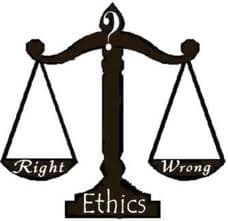Leadership requires judgment.
A leader judges what’s right or wrong, what’s ethical or not. She judges when to flex between the hard edge of leadership (steel) and the soft edge (velvet). A leader judges how a subordinate is performing, whether to give someone a second chance, whether a candidate has character and will fit with the organization’s culture. And a leader judges how high to set goals.
“…with good judgment, little else matters; without good judgment, nothing else matters.”
–Noel Tichy and Warren Bennis, leadership authors
Leaders judge.
How do we know when to trust our own judgment? Some might feel they are not smart enough, or creative enough, to judge.
Others say we have to judge after analyzing all the facts. Some say we have to rely on our “gut,” or intuition. But we can’t always trust our logic or our feelings. Daniel Kahneman in his path-breaking book, Thinking, Fast and Slow, analyzes how we think.
“Fast,” or intuitive thinking, seeks patterns quickly to better assess information. “Slow,” or rational thinking, carefully analyzes information. Fast thinking can easily reach erroneous conclusions. Slow thinking can be lazy and just agree with what fast thinking suggests.
8 Tips for Learning to Trust Your Judgment
So, we have to develop our judgment capabilities. Here are eight tips for learning to trust your judgment:
- Personal values. Write down and pay attention to your personal core values. These values should guide your judgment. (To get started, use our Personal Values Exercise.)
- Volunteer to Lead. Judgment is honed from experience. Develop your leadership judgment by continually volunteering for leadership assignments. Start with smaller projects and work your way up to more challenging ones.
- Assess Afterwards. After completing each project, conduct a candid appraisal with your colleagues about what went well and wrong. Write your assessments down. You’ll find a treasure of insights in this exercise.
- Admit Mistakes. By admitting mistakes, you open yourself up to feedback and build relationships and trust with caring colleagues.
- Small Groups. Hold regular meetings with trusted souls with whom you can confidentially share issues, fears, concerns, and dilemmas in a safe environment. This is a wonderful way to broaden your perspective and grow. (See our article, “The Power of Small Groups.”)
- 360s. Welcome 360-degree feedback from your subordinates, peers, and superiors. You will begin to see yourself as others see you (often with surprising insights), a powerful self-development practice.
- Mentors. Seek out someone you admire, whose judgment you believe is sound, and ask him or her to observe you in action and give you periodic feedback.
- Reflection. We are all busy, too busy. Sometimes we revel in telling people how busy we are, as if it makes us more important or worthy (vs. just bad at saying no, or seeking attention or recognition). See our blog “The Glorification of Busy.” We need to slow down, let go, and reflect, finding sanctuary in nature, prayer, meditation, or exercise.
Leaders must exercise judgment. It’s essential to effective leadership.
Practical Applications
- How many of our eight tips will you undertake to learn to trust and sharpen your judgment?
Tools for You
- Leadership Derailers Assessment to help you identify what’s inhibiting your leadership effectiveness
- Personal Values Exercise to help you determine and clarify what’s most important to you
- Alignment Scorecard to help you assess your organization’s level of alignment
Related Articles

Triple Crown Leadership Newsletter
Join our community. Sign up now and get our monthly inspirations (new articles, announcements, opportunities, resources, and more). Welcome!
+++++++++++++++++++++++
Gregg Vanourek and Bob Vanourek are leadership practitioners, teachers, and award-winning authors (and son and father). They are co-authors of Triple Crown Leadership: Building Excellent, Ethical, and Enduring Organizations, a winner of the International Book Awards. Check out their Leadership Derailers Assessment or get their monthly newsletter. If you found value in this, please forward it to a friend. Every little bit helps!

